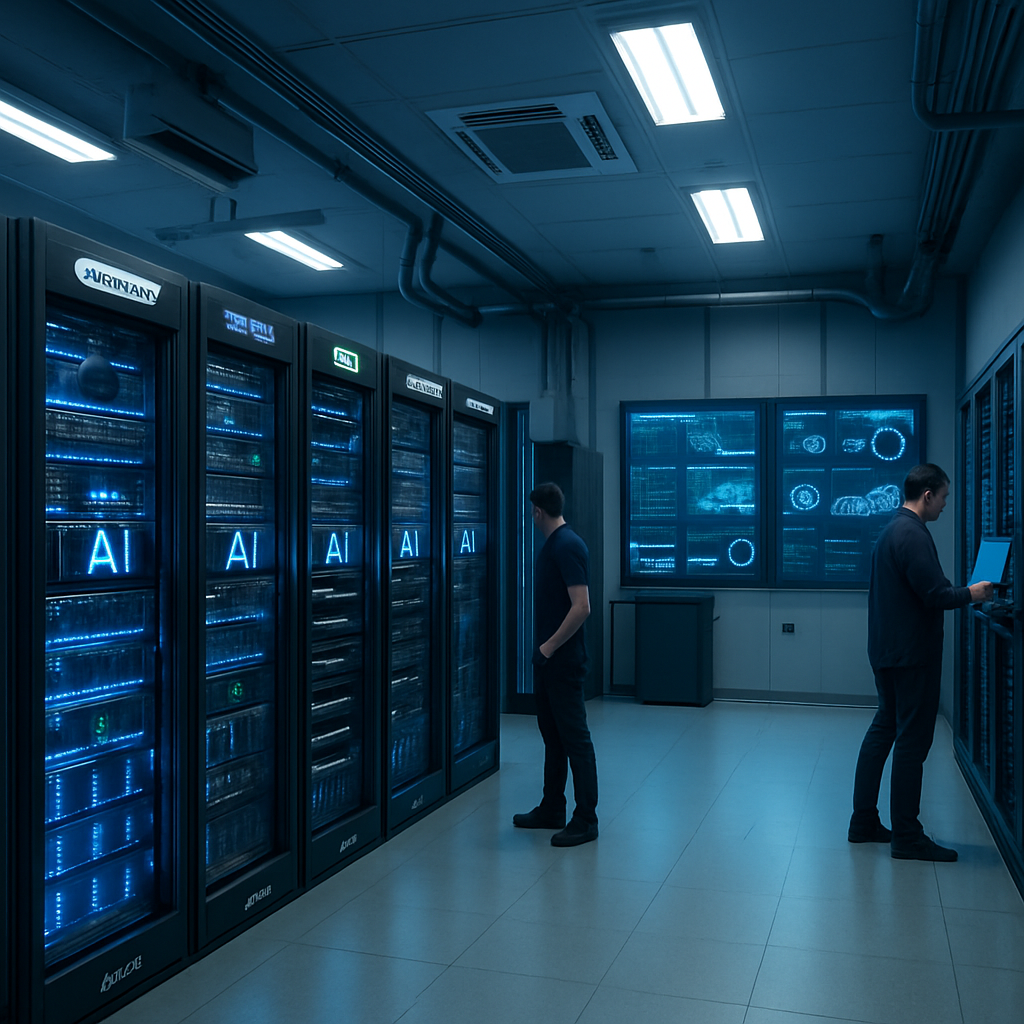Artificial Intelligence (AI) server manufacturers are witnessing unprecedented demand as data centers and enterprises seek enhanced computing power. This surge follows the rise of Generative AI tools like ChatGPT, prompting significant investments in cloud infrastructure and AI development. With enterprises allocating billions of dollars to these advancements, the need for high-performance AI servers has never been greater.
According to a recent assessment by ABI Research, the landscape of AI server manufacturers shows a clear distinction among the top players. The report evaluates eight global companies based on criteria such as performance, workload optimization, environmental impact, and future-readiness. Here is a closer look at the top five AI server vendors based on ABI’s findings.
Leading AI Server Companies Ranked
Supermicro scored the highest with a remarkable 83.7. Based in San Jose, California, Supermicro is recognized for its agile delivery of AI servers, which are designed to meet the evolving needs of data centers. The company’s innovative Data Center Building Block Solutions allow for extensive modularity, catering to both small enterprises and large-scale deployments. Notably, Supermicro’s cooling solutions can handle rack densities of up to 250 kW, making it a preferred supplier for major organizations like Amazon Web Services and NVIDIA.
Following closely, Dell secured a score of 80.8. The Round Rock, Texas-based company boasts a diverse portfolio that supports various AI workloads. Its systems are tailored for different stages of the AI lifecycle, from CPU-only processing to complex model training. Dell’s strong legacy in high-performance computing (HPC) is underscored by its substantial collaborations with NVIDIA and AMD. The company’s advanced cooling capabilities can reach up to 480 kW, positioning it as a reliable choice for enterprises scaling their AI operations.
In third place, Hewlett-Packard Enterprise (HPE) received a score of 79.0. Also headquartered in Texas, HPE is known for its supercomputing heritage and advanced networking expertise. The company’s cooling solutions can manage up to 400 kW per rack, making it a strong contender in the market. HPE’s involvement in consortiums such as UEC and UALink highlights its commitment to developing open, high-performance AI infrastructures.
Lenovo ranked fourth with a score of 75.7. This Chinese tech giant benefits from a vertically integrated supply chain, enabling it to control critical components. Lenovo’s AI server offerings cater to diverse workloads, including model training and fine-tuning. The company offers flexible financing options, including traditional leasing and subscription models, appealing to cost-conscious enterprises.
Lastly, Cisco rounded out the top five with a score of 69.4. Known for its networking and software capabilities, Cisco provides reliable AI server solutions focused on network performance and security. While its hardware may lag behind some competitors, Cisco maintains a robust portfolio that ensures interoperability across various platforms.
Key Trends Shaping the AI Server Market
As the demand for AI capabilities grows, traditional servers are increasingly seen as inadequate. Legacy systems struggle to provide the necessary processing power and cooling solutions required by modern data centers. In response, AI server manufacturers are focusing on several key features:
1. **Performance and Densification**: Companies like NVIDIA and AMD are setting industry standards with advancements in performance and thermal density, leading to innovative server solutions.
2. **Integrated Solutions**: There is a noticeable shift towards pre-configured racks and clusters that combine computing, networking, and cooling. This trend simplifies deployment for enterprises and data center operators.
3. **Open Architecture**: The rise of organizations like the Open Compute Project (OCP) reflects a strong demand for open data center designs, reducing vendor lock-in and facilitating easier upgrades.
4. **Enhanced Services**: Leading AI server companies are expanding their offerings beyond hardware. Vendors such as Supermicro and Dell provide extensive professional services, including planning, deployment, and lifecycle management, ensuring ongoing customer support.
This evolving landscape of AI server manufacturers illustrates the competitive nature of the industry. As enterprises continue to invest heavily in AI technologies, the performance, flexibility, and support offered by these companies will be crucial for success in a rapidly changing market. For detailed insights into the AI server landscape, interested parties can access the full report from ABI Research, which outlines the strengths and weaknesses of these top vendors.
